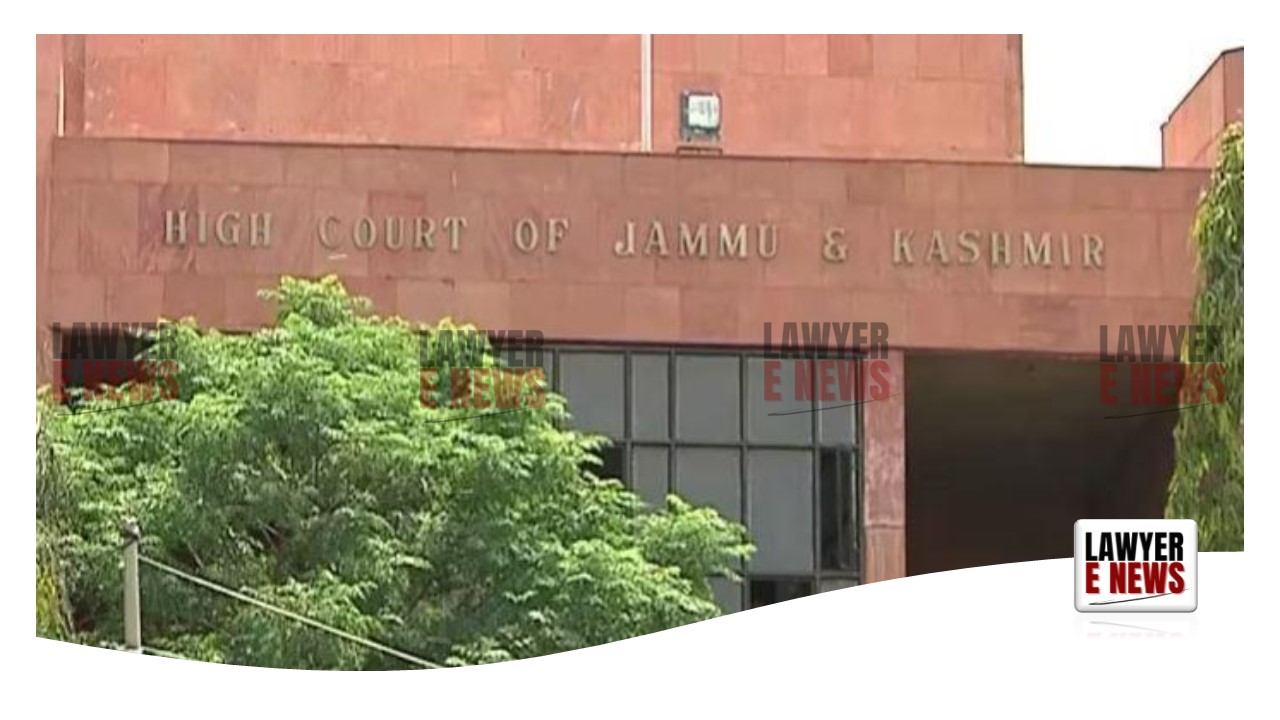-
by Admin
15 February 2026 5:35 AM



The High Court of Jammu & Kashmir and Ladakh, on November 11, 2024, dismissed two petitions concerning a dispute over a public pathway and allegations of caste-based abuse under the Scheduled Castes and Scheduled Tribes (Prevention of Atrocities) Act, 1989. The court upheld the trial court’s decision to drop charges under Sections 109 IPC and Sections 3(1)(x)(xi) of the SC/ST Act while retaining charges under Sections 447, 427, 147, 148, 504, and 506 IPC.
The matter originated from a long-standing dispute over a public pathway in the village of Chinchora, Tehsil Bhaderwah, District Doda. Sunaina Devi, the petitioner in one of the cases, alleged that the respondents, who are her co-villagers, obstructed the public pathway, which had been repaired by the Rural Development Department under MGNREGA funds in 2016. Sunaina claimed that her son, Sanjay Kumar, faced threats and harassment when trying to assert their right over the pathway.
On August 16, 2020, Sunaina lodged a complaint with the local police alleging trespass, destruction of property, and caste-based abuse. Dissatisfied with the police inaction, she filed an application under Section 156(3) of the CrPC before the Judicial Magistrate, which led to the registration of FIR No. 153/2020 against the respondents under multiple IPC provisions and Sections 3(1)(x)(xi) of the SC/ST Act.
Following the police investigation, the trial court framed charges under certain IPC sections but dropped charges under Sections 109 IPC and 3(1)(x)(xi) of the SC/ST Act. Sunaina filed a revision petition challenging the trial court’s order, while the accused filed a petition seeking the quashing of the FIR.
Applicability of SC/ST Act Charges: The petitioner contended that the respondents intentionally insulted and intimidated her with caste-based abuse. The trial court held that the allegations were insufficient to attract Sections 3(1)(x)(xi) of the SC/ST Act, as the incident allegedly occurred within private premises and lacked public view—a key requirement under the Act.
Delay in Filing Complaint: The three-month delay between the alleged incident and the registration of the complaint under the SC/ST Act raised questions about the credibility of the allegations.
Scope of Section 482 CrPC: The respondents argued for the quashing of the FIR, claiming that it was baseless and amounted to an abuse of legal process.
Justice Vinod Chatterji Koul made detailed observations while addressing the legal contentions in both petitions:
The court noted that under Sections 3(1)(x)(xi) of the SC/ST Act, caste-based insults or intimidation must occur in public view. In this case, the complaints were contradictory. The initial complaint dated August 16, 2020, alleged physical assault within the house, but it did not mention caste-based abuse. Allegations of caste-based abuse were introduced in a subsequent complaint dated November 13, 2020. The court held:
"There is no whisper of abusing the complainant party with their caste name, nor is there absolutely any allegation that the accused persons, with a view to intentionally insult, intimidate, or humiliate the complainant party, used any caste-based slurs in public view."
The court found that the delay of over three months between the incident and the lodging of the SC/ST Act charges was unexplained, which undermined the credibility of the allegations. The addition of SC/ST Act charges in a subsequent complaint raised suspicion of embellishment.
"The addition of commission of the offence under 3(1)(x)(xi) of the SC/ST Act was added after 3 months when the complaint was filed before the Judicial Magistrate. Such unexplained delay renders the charges baseless."
On the petition to quash the FIR, the court referred to the Supreme Court rulings in State of Telangana v. Habib Abdullah Jeelani (2017) and Monica Kumar (Dr) v. State of U.P. (2008). It reiterated that powers under Section 482 CrPC to quash FIRs must be exercised sparingly and only in cases of clear abuse of process. Since the police investigation was completed, and a charge sheet had been filed, the court ruled:
"The charges framed regarding the alleged offences are required to be proved during the trial by adducing evidence. Grounds taken by the petitioners can be presented in defense before the trial court."
Both petitions were dismissed. The court upheld the trial court's order to drop charges under Sections 109 IPC and 3(1)(x)(xi) of the SC/ST Act while allowing the trial to proceed on the remaining IPC charges. The court emphasized that detailed appreciation of evidence is not required at the stage of charge framing and directed the trial court to expedite the trial.
Date of Decision: November 11, 2024
